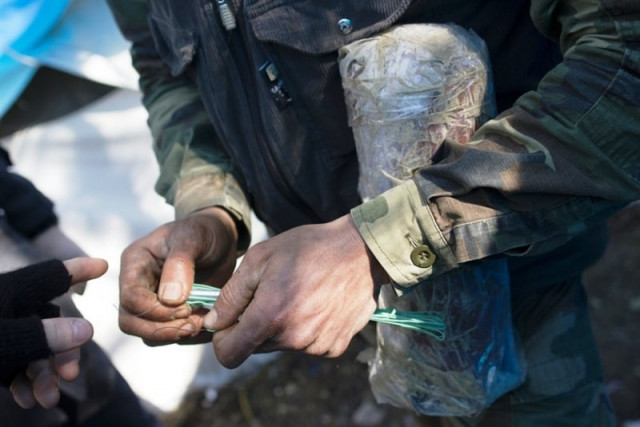Countering IEDs: Stop flow of explosive fertilizer, Pakistan told
US official says the manufacturers of calcium ammonium nitrate in the country have been ‘less than cooperative’.

Countering IEDs: Stop flow of explosive fertilizer, Pakistan told
While the director of the US Department of Defense’s Joint Improvised Explosive Device Defeat Organisation (JIEDDO) is encouraged by Islamabad’s assurances on stopping the flow of improvised explosive devices (IEDs), he believes Pakistan can and must do more.
In a hearing of the Senate Foreign Relations Subcommittee on Near Eastern, South and Central Asian Affairs regarding IEDs and terrorist networks in Pakistan, JIEDDO Director Lieutenant General Micheal Barbero said that Pakistani producers of calcium ammonium nitrate – an agricultural fertiliser used to make explosives – have been “less than cooperative” in discussions with the US. He maintained that while they have made minor packaging and tracking changes, they still have to implement any effective product security. He said he believed these producers must also do more.

“Despite a ban on calcium ammonium nitrate by Kabul, the fertiliser has been used in more than 70% of roadside bombs used against coalition forces in Afghanistan,” Lt Gen Barbero told the subcommittee. According to him, the amount of IED materials seized in Afghanistan has increased from 30 tons in 2009 to 444 tons currently in 2012.
The JIEDDO Director told the hearing that Pakistan’s national counter-IED strategy had not been fully implemented either and legislation pertaining to the matter had yet to be passed by the Parliament.
“In July, the Government of Pakistan committed to a military-to-military counter-IED cooperation framework. To date, despite our input, this document remains in its original draft form with no progress.”
Lt Gen maintained that a strong US-Pakistan partnership was required to tackle IED networks on both sides of the border and that both countries need to move beyond discussing cooperation to actual cooperation.

Meanwhile, subcommittee chairman Senator Bob Casey who convened the meeting, said he received a letter from US Ambassador to Pakistan Richard Olson on Wednesday which highlighted the casualty toll in Pakistan from IED attacks. Around 2,395 people had been killed in such attacks in the past year, he maintained citing figures compiled by the US embassy in Pakistan.
“Each of these deaths is a tragedy,” said Senator Casey, adding that the US honours the sacrifices Pakistanis have made in the struggle against violent extremists. He too, however, underscored the need to do more on Pakistan’s part.
“While I’m pleased that Pakistan has developed a very detailed and comprehensive set of plans to counter IEDs, let me be clear … it’s time to fully implement these plans,” he said.
“The current pace of activity by the Pakistani government is not acceptable… IED incidents have risen in Afghanistan. The flow of chemicals coming from across the border has not diminished,” the Senator added. (WITH ADDITIONAL INPUT FROM AFP)
Published in The Express Tribune, December 15th, 2012.



















COMMENTS
Comments are moderated and generally will be posted if they are on-topic and not abusive.
For more information, please see our Comments FAQ